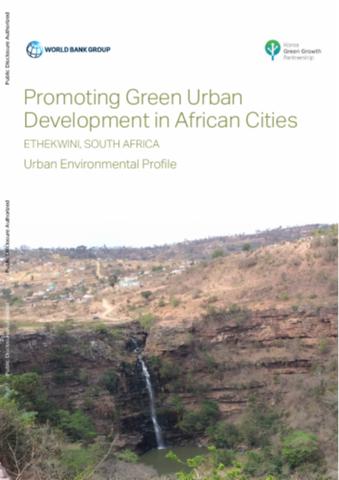The World Bank is a vital source of financial and technical assistance to developing countries around the world. We are not a bank in the ordinary sense but a unique partnership to reduce poverty and support development. The World Bank Group has two ambitious goals: End extreme poverty within a generation and boost shared prosperity.
- To end extreme poverty, the Bank's goal is to decrease the percentage of people living on less than $1.25 a day to no more than 3% by 2030.
- To promote shared prosperity, the goal is to promote income growth of the bottom 40% of the population in each country.
The World Bank Group comprises five institutions managed by their member countries.
The World Bank Group and Land: Working to protect the rights of existing land users and to help secure benefits for smallholder farmers
The World Bank (IBRD and IDA) interacts primarily with governments to increase agricultural productivity, strengthen land tenure policies and improve land governance. More than 90% of the World Bank’s agriculture portfolio focuses on the productivity and access to markets by small holder farmers. Ten percent of our projects focus on the governance of land tenure.
Similarly, investments by the International Finance Corporation (IFC), the World Bank Group’s private sector arm, including those in larger scale enterprises, overwhelmingly support smallholder farmers through improved access to finance, inputs and markets, and as direct suppliers. IFC invests in environmentally and socially sustainable private enterprises in all parts of the value chain (inputs such as irrigation and fertilizers, primary production, processing, transport and storage, traders, and risk management facilities including weather/crop insurance, warehouse financing, etc
For more information, visit the World Bank Group and land and food security (https://www.worldbank.org/en/topic/agriculture/brief/land-and-food-security1
Resources
Displaying 496 - 500 of 4907DEVELOPMENT AND IMPLEMENTATION OF THE LAND MANAGEMENT SYSTEM: AN IMPETUS OR A DETERRENT TO EFFECTIVE AND EFFICIENT LAND MANAGEMENT IN KENYA?
A Land Information Management System (LIMS) is an information system that enables the capture, management, and analysis of geographically referenced land-related data in order to produce land information for decision-making in land administration and management. The system is a Geospatial Information System (GIS) driven for the purposes of handling and managing parcel based information. The Republic of Kenya, located in East Africa, ranks 33rd in the world in terms of population with 38.6 million people and has a land area of 224,081 square miles.
Hashemite Kingdom of Jordan Promoting Poverty Reduction and Shared Prosperity
Jordan is an upper middle income country which has proven remarkably resilient despite decades of turmoil in its neighborhood. Even with economic stability in the face of massive shocks, the Jordanian government - reflecting the views of the population - has made clear the need for improvement in the current growth trajectory. Public dissatisfaction coalesced around a perception, which the government acknowledges, that previous reform efforts had struggled with implementation, while discretionary decisions and unequal opportunities remain entrenched.
Institutional Models for a Future Recognition and Registration of Customary (Communal) Tenure in Myanmar
Paper prepared for presentation at the 2016 WORLD BANK CONFERENCE ON LAND AND POVERTY, The World Bank - Washington DC, March 14-18, 2016
Promoting Green Urban Development in African Cities
The city of eThekwini or Durban has undergone a period of rapid urbanization that has contributed to the degradation of the city’s natural environment. Climate change is placing further strains on the city’s ability to manage the urban environment. The urban environmental profile of eThekwini has been prepared as the first component of the assignment promoting green urban development in Africa: enhancing the relationship between urbanization, environmental assets and ecosystem services, a project being conducted under the leadership of the World Bank.
A Practical Handbook for Environmental Regulators and Legislators Working in Situations Affected by Fragility, Conflict and Extreme Violence
This handbook is the product of a
workshop held in June 2014 with about 25 environmental
regulators from over 10 FCV-affected countries (Burkina
Faso, Central African Republic, Kenya, Liberia, Madagascar,
Mali, Mozambique, Nigeria, Sierra Leone, South Sudan, and
Sudan) that was financed by the Korean Trust Fund (KTF) and
organized and hosted by the World Bank Group (WBG). Over the
course of one week the participants went through a dense









